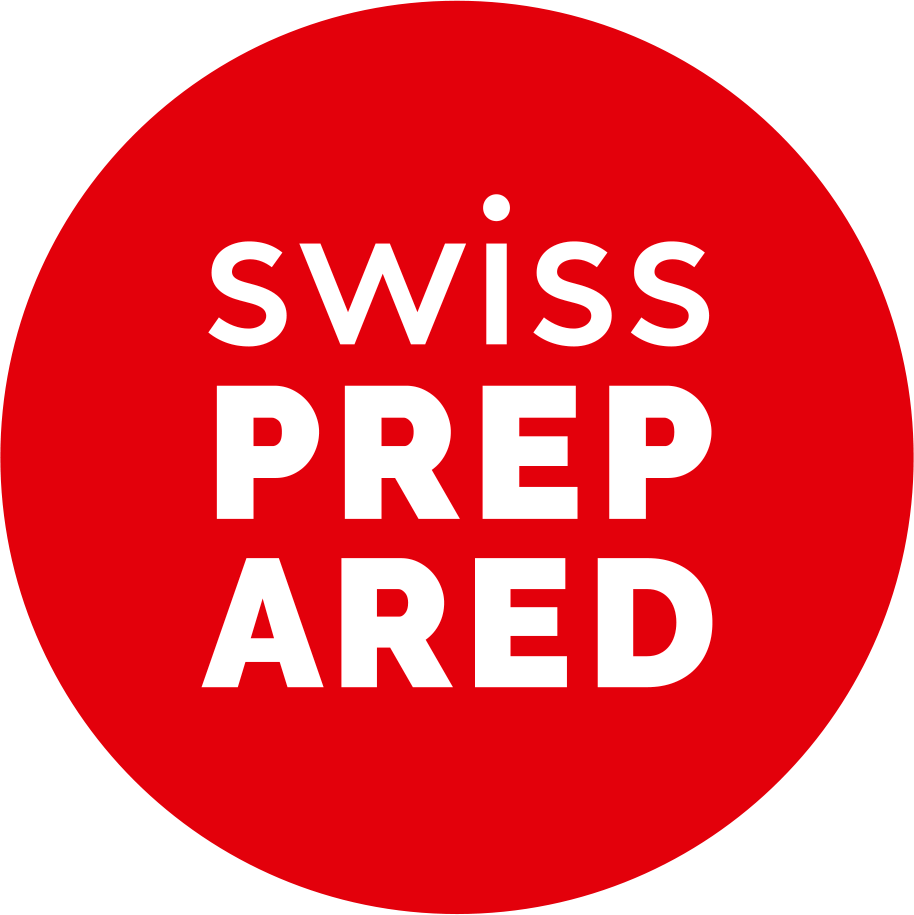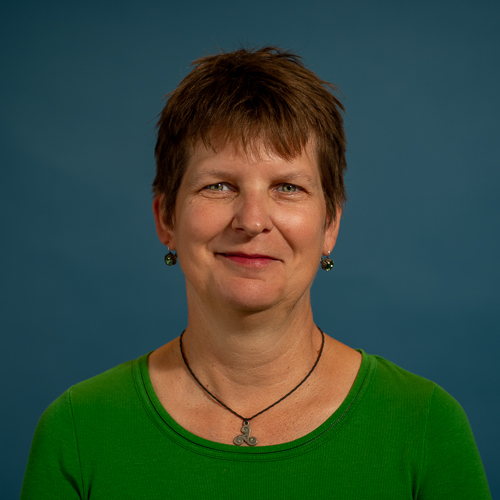Study Spotlight: SwissPrEPared
Study Spotlight: SwissPrEPared
Who are you and what is your field of work or research?
My name is Manuela Rasi, I'm originally trained in psychiatric nursing and later studied nursing science. My clinical and research focus was initially on HIV, hepatitis and STIs. Then, due to the pandemic, we switched to Covid-19 and have been doing mostly Covid studies for the last few years. The studies here at EBPI were very large. We enrolled thousands of subjects - a really big deal.
Now, fortunately, other topics are coming up again, and I'm glad about that. For example, we have projects on sexual health with PrEP and sexual health while traveling. At the moment, we are also working on a measles-mumps-rubella immunity study, which aims to test the immunity of the population.
Today, I manage the clinical study center here at EBPI and I am involved and entrusted with different projects. My main focus, however, is the implementation of clinical trials here at the Travel Clinic and I am also advising researchers in the implementation of their study projects at the institute.
The incidents at Platzspitz and Letten station have left their mark on Switzerland. Can you tell us something about that?
Yes, I remember that time well! I was a young adult at the time and followed the media reports. The situation made big waves internationally and also in the psychiatric ward. We had addicted people again and again, because they often didn't know what to do with these people. So they often came to us in the psychiatric ward for withdrawal treatment. I was interested in that. I also traveled to Zurich to take a look at the Platzspitz (or Needle Park, as it was called at the time). I can hardly describe it, it affected me deeply and had a lasting effect on me. It was an unbelievable misery.
At that time, I was also somewhat involved in politics. Back then it was not allowed to give out clean syringes and so, naturally, innumerable people infected themselves with HIV and hepatitis because of syringe exchange or unclean injections. That was really bad. If I remember correctly, the Platzspitz closed in 1992, which of course could be followed in the media. This was done in a violent and unpleasant way. It didn't really help. Everything simply shifted to the Letten and there, in my oppinion, the misery was even greater.
Around 1995, the Letten was closed after a change in drug policy took place. For example, Arud was founded in Switzerland, a working group for low-risk drug use. They opened a heroin and methadone dispensary at that time, after which there were several such centers in Zurich. At the time, that was the key to getting addicts off the street, to be able to integrate them and substitute them so that they could pursue another life. I still remember that quite well! Later, I worked in a heroin and methadone dispensary and had access to this clientele. I heard a lot of stories, a lot of sad things, which really stuck with me.
HIV was already an issue there, even later when I worked in the field of infectious diseases. These people are always with you. There were also a lot of drug addicts in the hospital in the infectious diseases wing, who were treated there. They all got good treatment. Many thought that it wouldn't work with this population, but they were very interested in their health, which impressed me a lot. You only ever saw them in misery on the streets, but when they had the opportunity, they cared a lot about treatment. I found that very impressive. In the past, there were still the "classic heroin addicts"; we have less of that today. Nowadays, we tend to have multi-dependent addicts. Heroin is less "in" now and other drugs like cocaine, GHB, crack and others are being used more often. It's a different picture today than it used to be.
The Travel Clinic is working on a research project called "SwissPrEPared". What is it about?
SwissPrEPared is a large multi-center study, or rather a program with a companion study, with over 40 centers in Switzerland and it started in 2019. It is about HIV pre-exposure prophylaxis PrEP and sexual health in general. PrEP stands for HIV pre-exposure prophylaxis. It's a medicine you can take before unprotected sex to protect yourself from an HIV infection. The goal of this program and this study is that you can improve the care of people who take PrEP or people interested in PrEP and adjust the medical guidelines (that we created) according to scientific standards that.
We developed a counseling tool, which is also a data tool, to help counseling professionals to work efficiently and not forget anything. The test persons fill out questionnaires. This way we learn something about their behavior. This should also help to make PrEP accessible in Switzerland, so that professionals (also from smaller practices that do not have much experience) have guidelines and can really give competent advice.
At the moment, the focus of SwissPrEPared is on MSM, that is men who have sex with men, and, among others, also transmen and sex workers (especially male sex workers). In another project, however, we also want to reach, as the saying goes, "the other half of the pandemic", i.e. the rest of the society, i.e. heterosexuals who simply do not have the information yet.
Regarding HIV, the queer population (especially MSM) is the group with an increased risk. With frequently changing sexual partners, this virus of course also goes around faster. The same is true for other sexually transmitted infections such as gonorrhea, chlamydia and syphilis. That is why we started with this group. They are certainly the people who need it the most. They know it well, PrEP has been taken for quite some time. We started back in 2016, but back then PrEP was already available for years in America and England. The queer community is very well informed, they also talk more openly about sexual health. So they had already heard about PrEP. There was a lot of pressure (from the community) for it to be available in Switzerland. It's a drug that wasn't approved for this indication here at the time - fortunately we have a generic today. The original PrEP was very expensive, at the beginning a couple hundred CHF for a monthly pack. Nobody could afford that.
In fact, that's how this program SwissPrEPared came about. It was activists but also experts in Switzerland who initiated this program. It is going quite well. We have enrolled 6,000 people so far, opened over 40 centers - the need is clearly there.
Are there any other past, ongoing or upcoming projects that you would like to draw attention to?
Yes, what we've been doing over the last few years during the pandemic are the Corona studies, and two important studies in particular are still ongoing. That's the Zurich Corona Cohort Study and the Zurich Coronavirus Vaccination Study. Those have been going for quite some time now. They may be extended in some cases. It's very valuable to see the progression over a longer period of time, that's the cohort. Even internationally, there are not many studies that followed people for such a long period of time. So that's very important. That's where we did make a very good contribution to Corona.
The other thing, of course, as I mentioned earlier, is the TravelPrEPared project. I think you already asked my colleague (Dunja Nicca) about that. This is about sexual health while traveling. From my point of view, this is really very exciting and a very important project.
Why is this topic so close to your heart?
Sexual health, you mean? Dealing with the topic of sex is something very personal and is also shaped by beliefs, values and cultural backgrounds, and many people do not find it easy at all to talk about the topic. On the one hand it is difficult for the professionals, on the other hand, of course, it is difficult for the clients. I also worked for many years in the field of STI, i.e. sexually transmitted infections, and had many experiences there. I experienced the queer community as somewhat better informed, more open - in the straight community this knowledge is somewhat less common. There's also a lot of half-knowledge there, the generation that still grew up with HIV is slowly disappearing. This generation, of course, has heard more, at least about HIV. When it comes to STI knowledge, i.e. chlamydia and gonorrhea, how to transmit it, there is a lot of half-knowledge. I think this is an important topic and should be addressed.
Especially here in travel medicine, for example, is a good place for it. When you travel, you usually have sex. You are relaxed and have time, and you simply need support. That's why I think it's important to be able to sit across from people as a specialist without prejudice and also to be able to give this advice. People should feel accepted and also dare to ask something. That's the only way to have an exchange and to pass on knowledge. And for that, you simply need more knowledge and more training on how to build that up. That's what the TravelPrEPared project is for, for example.
Another experience I've made is that the queer community or sex workers have had very bad experiences with the health care system. This is often based on ideas, values and norms that people have in their heads, and I think that this simply can't happen. You have to do something about it. That is what has driven me and continues to excite me, and I would like to do something about it.
You have more questions about SwissPrEPared or PrEP? You can find more information here.

*This post is a free transcription. The original post was published as a video post/reel on our Instagram profile on June 28th, 2023.


